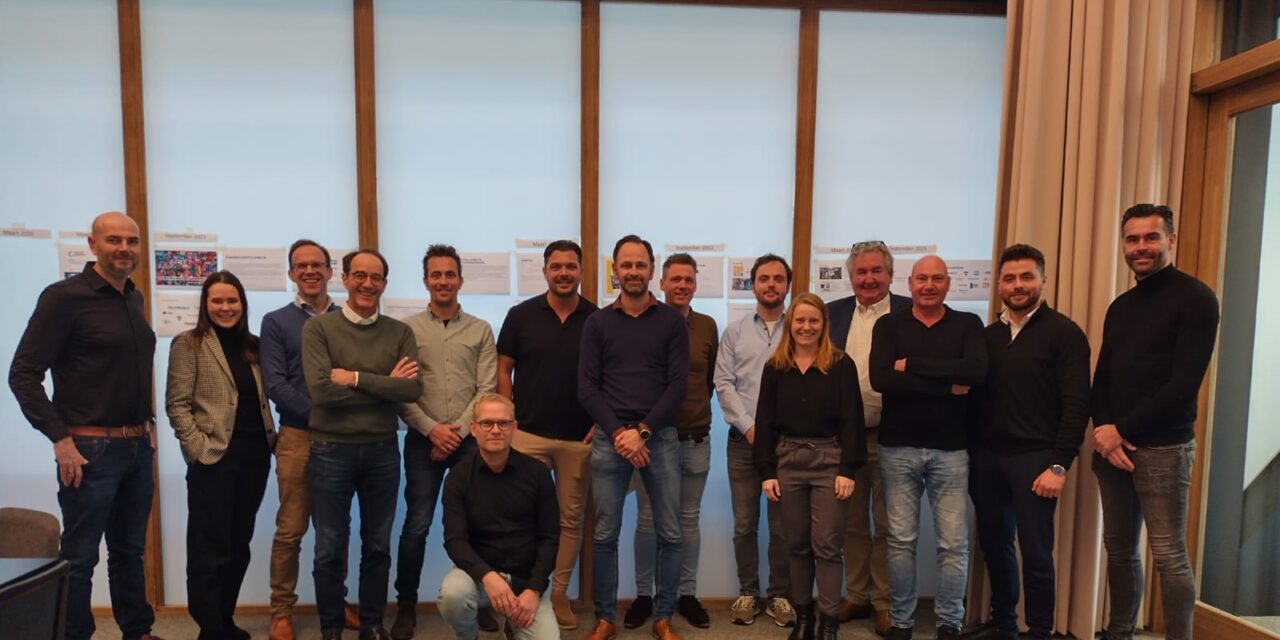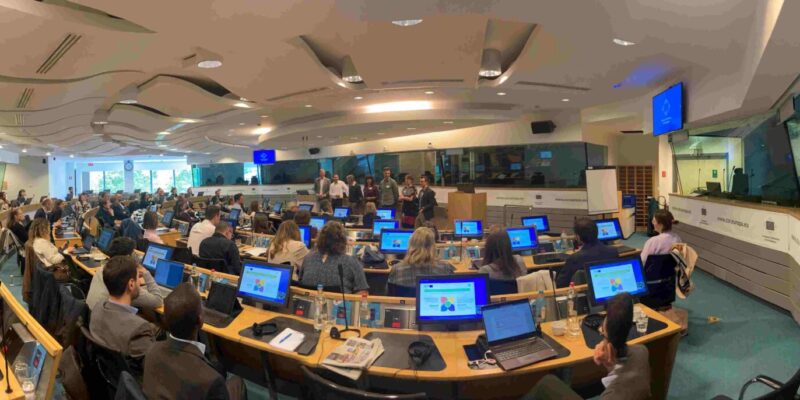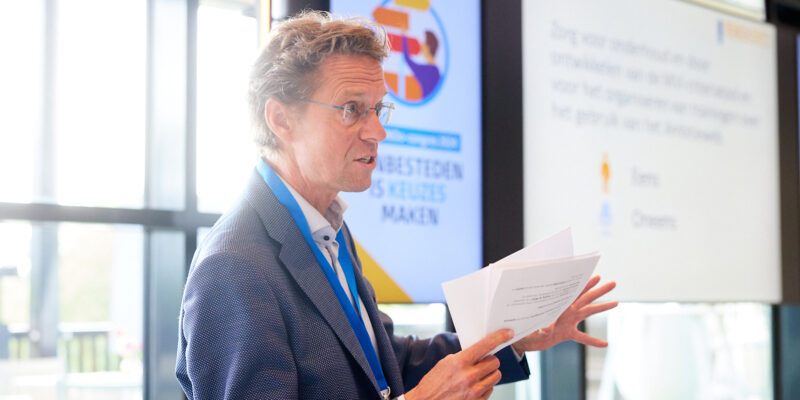Buyer group paint buckets: circular future for paint buckets

By 2050, the Netherlands wants to be fully circular. In a circular economy, we handle raw materials and products economically and smartly. A part of this is reducing the use of primary plastics. These are the plastics that come directly from the chemical industry as raw materials, made from petroleum. The goal is to halve the use of primary plastics by 2030 in comparison to 2016 values, and reduce the use to zero by 2050. The paint sector is a promising sector where great strides can be made in making plastic flows circular. To this end, the market vision ‘Getting started with circular paint buckets’ has been drawn up. MVO Nederland set up the ‘buyer group circular plastics: paint buckets’ along with Rijkswaterstaat in 2021. The establishment of the buyer group ‘Circular Plastics: Paint Buckets’ was funded by the Ministry of Infrastructure and Water Management.
The entire chain involved in the buyer group
Paint manufacturers, paint bucket producers, trade associations, compounders, distributors and wholesalers all work together in this buyer group:
• AkzoNobel
• Rova
• Looijen Schilderwerken
• Onderhoud NL
• PPG
• Keim
• VVVF
• Vereniging Winkelketens and Doe Het Zelf branche
• Dijkstra Plastics
• Hildering Packaging
• Houweling Group
• Veolia Polymers
• De Paauw Sustainable Resources
The members of the buyer group were very open and decisive. The biggest opportunity identified in creating a circular chain is increasing the percentage of recyclate in paint buckets. This is only possible if more recyclate is available. To contribute to the goal of increasing the percentage of recyclate in paint buckets, it is essential that return logistics are well organized. The group started by drawing up a joint ambition, focusing on the use of recyclate and the availability of raw materials. A challenging process, given its size and international nature, but a foundation with huge impact.
Big ambition! Dutch paint bucket consists of 90% recyclate from 2025
The buyer group aims to have all Dutch paint buckets made of at least 90% recyclate by 2025, and the lids made from at least 80% recyclate. The label, handle and grip are outside this target. All foreign buckets should be made of at least 35% recyclate.
Set up return logistics for reuse of paint buckets
As well as manufacturing the paint buckets, the buyer group has set the goal of setting up return logistics. This will return used plastic paint buckets back into the supply chain.
Precondition for circular paint buckets: chain cooperation
To meet the targets set, several requirements need to be taken into account, in addition to the availability of recyclate. Consider the desired technical and marketing requirements. This requires support within the sector. Communication is also an important part of this transition.
Experimenting with recycled materials
Participants conducted experiments with the materials and by testing the paint bucket requirements with new materials, a lot was learned. These insights call for new tests, in order arrive at the best solution for the entire industry.
New phase includes scaling up and impact
New parties have now joined the buyer group and everyone is motivated to realise the great ambitions. A key success factor for creating the circular paint bucket is chain cooperation. The buyer group has laid the foundations for upscaling here. In the foreseeable future, we expect the first circular paint bucket that achieves the ambitions of the group, a breakthrough we can be proud of!
Read more about the plastics transition agenda here.
Get started now?


